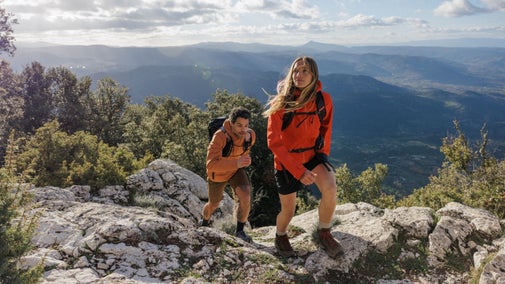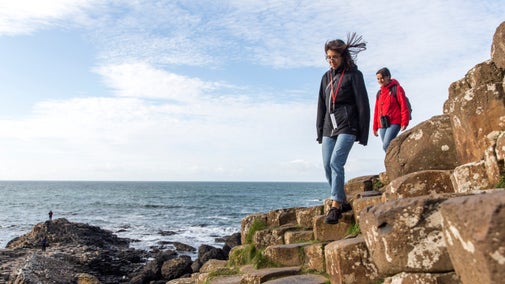Lizard Point walk: the most southerly place in Britain
Cornwall
Take in dramatic views of the Atlantic, visit the lighthouse and look out for local wildlife on this enjoyable walk around the most southerly point in Britain.
Near to
Lizard PointStart point
Lizard Point National Trust car park, grid ref SW703116Trail information
*Terrain is a mix of tarmac, natural coastal paths and fields. For further details, see the Terrain section.
**There is an accessible route to Lizard Point. The main route includes steps, stiles, uneven ground and steep sections. For further details, see Access section.
***Keep dogs under close control, especially near livestock and wildlife. For further details, see Facilities section.
More near here
The Lizard coastal walk
Starting from the beautiful Kynance Cove, get close to nature and enjoy dramatic scenery on the Lizard coastal walk,

Medieval mills & a ruined Victorian factory walk near Lizard Point
Discover medieval mills and the ruins of a Victorian stoneware factory on this walk down to the sea through the picturesque Poltesco valley.

Get in touch
Our partners

We’ve partnered with Cotswold Outdoor to help everyone make the most of their time outdoors in the places we care for.
You might also be interested in
Outdoor activities at Lizard Point
Have a go at kayaking, climbing or coasteering with our partner Lizard Adventure. Or join a surfing lesson & catch some waves with former professional Dan Joel.

The Wildlife Watchpoint
Sitting at the tip of Britain's most southerly point is the volunteer-run wildlife watchpoint. Discover Atlantic grey seals, dolphins, basking sharks and Cornish choughs against the dramatic scenery of the Lizard. The Wildlife Watchpoint is now closed for winter & will reopen in April 2026.

Cotswold Outdoor: our exclusive walking partner
Learn about the National Trust’s ongoing partnership with Cotswold Outdoor. Find out how they help us care for precious places and the exclusive discount available for National Trust supporters.

Walking in Cornwall
From strolls that reward you with stunning views of the South West coast to gentle inland meanders, these are some of the best walks in Cornwall.

Staying safe at National Trust places
The special places in National Trust care sometimes come with a few risks for visitors, be it coastline or countryside. Find out how to keep safe throughout your visits.

Follow the Countryside Code
Help to look after National Trust places by observing a few simple guidelines during your visit and following the Countryside Code.

Walking
Explore some of the finest landscapes in our care on coastal paths, accessible trails, woodland walks and everything in between. Find the best places to walk near you.



